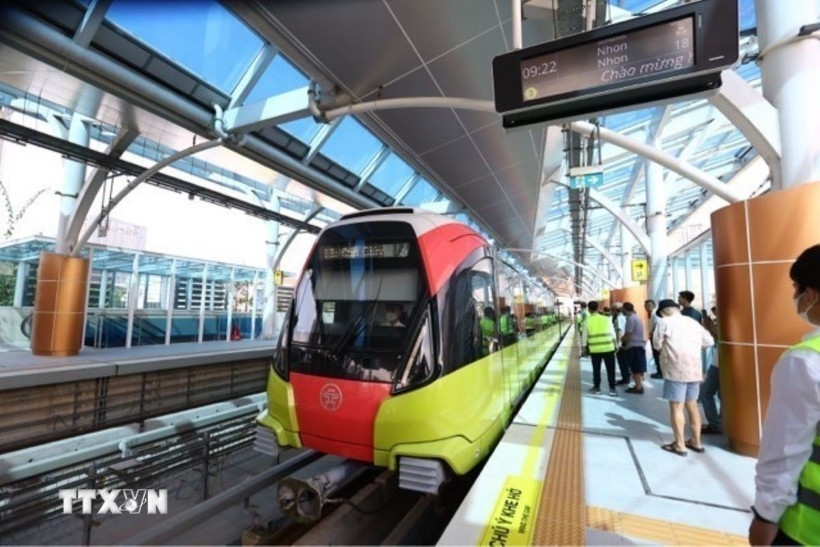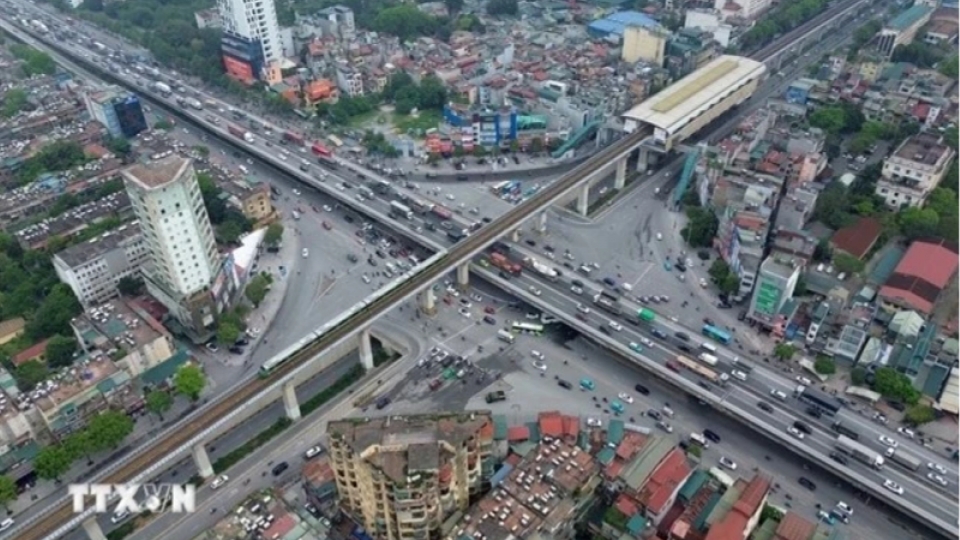Hanoi to begin construction of two major urban railway lines in late 2025
Hanoi will break ground for two key urban railway projects in the fourth quarter of 2025, as part of the city's long-term strategy to expand public transport system, thus easing traffic congestion.

Under the Prime Minister’s Decision No. 1569/QD-TTg dated December 12, 2024, approving the capital city’s master plan for the 2021–2030 period with a vision to 2050, Hanoi is set to develop 14 new urban railway lines. To realise this goal, the city's authorities are accelerating preparations for construction of urban railway line No. 2 (Nam Thang Long – Tran Hung Dao) and urban railway line No. 5 (Van Cao – Hoa Lac), which are scheduled to commence on October 10, and December 19, respectively.
Vice Chairman of the municipal People’s Committee Duong Duc Tuan urged all relevant departments, ward-level authorities and units to promptly implement the city’s directives and report any obstacles for timely resolution.
Spanning 11.5 kilometres, line No. 2 will include an 8.9 km underground track and a 2.6 km elevated section. The line features seven underground and three elevated stations, with a total investment of nearly VND35.6 trillion (US$1.36 billion), an increase of more than VND16 trillion from its original approval in 2008.
The route begins at Nam Thang Long, runs along Nguyen Van Huyen, Hoang Quoc Viet, Hoang Hoa Tham, Thuy Khue, Phan Dinh Phung, and key Old Quarter streets such as Hang Giay, Hang Dao, and ends at Tran Hung Dao street.
Meanwhile, stretching over 38 km, line No. 5 is the longest in Hanoi’s metro network. Starting from Van Cao – Hoang Hoa Tham intersection, it runs through Ngoc Khanh, follows Thang Long Boulevard and Ring Road 4, and ends near Hoa Lac, about 5 km from the former Hoa Binh provincial boundary.
Line No. 5 will include 21 stations - six underground and 15 ground-level. Of its total length, more than 6 km will be underground, 2 km elevated, and the remainder at ground, aligned with existing roads to minimise land clearance and costs.
Total investment for line No. 5 is estimated at over VND61.9 trillion (nearly US$2.37 billion), mainly sourced from ODA, the city’s budget, and public-private partnerships (PPP).
The line is expected to connect central Hanoi with major development hubs such as Hoa Lac Hi-tech Park, Vietnam National University – Hanoi’s new campus, and Hoa Lac satellite urban area. This connectivity is anticipated to foster socio-economic growth along the city’s western corridor.



